This interdisciplinary English course examines the visual politics of literatures of bondage, focusing on colonial Brazil/Amazon, the cross-temporal Indian Ocean World, and our contemporary moment of globalization.
-
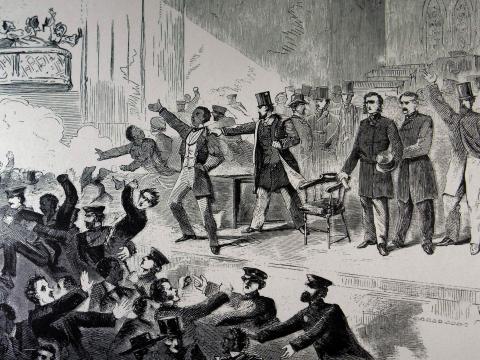
-
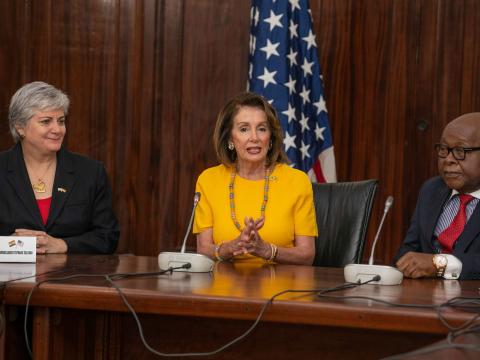
This political science course explores power and security through the lens of gender.
-
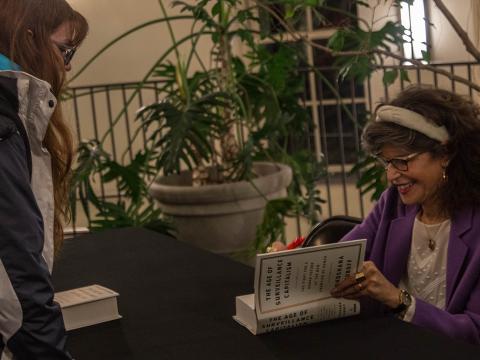
The talk was the latest in the yearlong Technology and Justice Series, sponsored by the President’s Initiative for Ethical Engagement and Leadership, which aims to help the Haverford community grapple with issues in the intersection of technology, equity, privacy, surveillance, sustainability, and more.
-

This seminar encourages students to analyze primary sources and secondary works to explore how and why early Friends came to see both war and slavery as immoral.
-
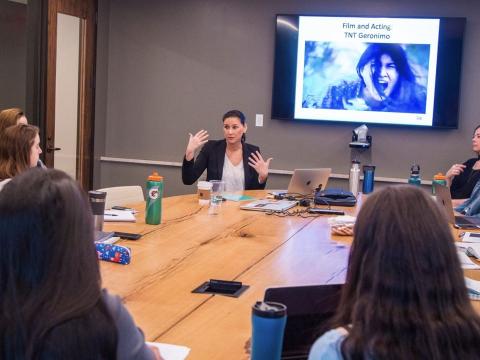
This course examines how anthropologists contribute to human rights in law and grassroots movements.
-

This political science course integrates diverse disciplinary approaches—legal, political, sociological and anthropological—to explore the causes of migration, the dynamics of assimilation and incorporation of migrants in the U.S., and the process and impacts of deportation and (re)incorporation in Mexico and Central America.
-

This anthropology course explores the tensions between indigenous peoples and the various political and ideological structures that govern their lives.
-
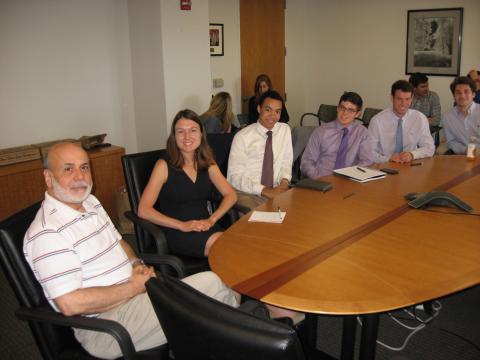
This economics course covers the history of monetary policy and central banking before and after the creation of the Fed, as well as current debates in monetary policy.
-
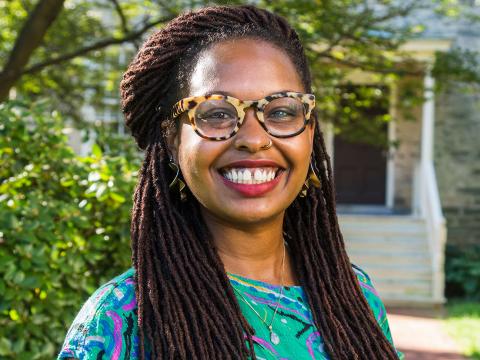
Ahead of its series finale, Assistant Professor of Philosophy Qrescent Mali Mason discusses how NBC comedy The Good Place offers lessons in ethics along with the laughs.
-
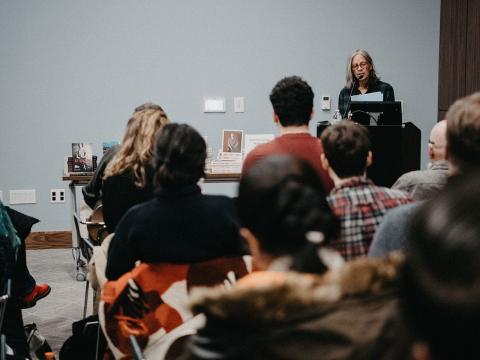
Earlier this month, poet Eileen Myles and Haverford’s Visiting Professor of English Thomas Devaney read their poems in Lutnick Library at a joint event.
-
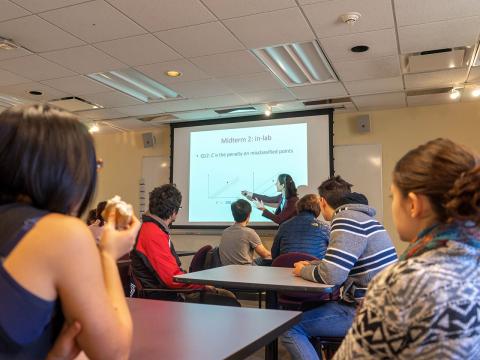
This computer science course explores both classical and modern approaches to machine learning, with an emphasis on theoretical understanding.
-

This visual studies course is an introduction to theories of work, thinking critically and historically about the role of work in society, the promise of art as an ideal form of work, and the structural persistence of gendered, classed, and racial divisions of labor.
-

This anthropology course explores visual representations of the border, including film and photography, but also text and sound.
-
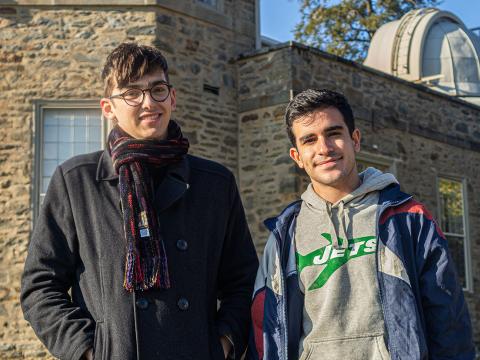
A new paper by Professor and Chair of Physics and Astronomy Andrea Lommen, Reilly Milburn ’19, Sergio Montano ’21, and Jesse Zeldes ’22 measures pulsar timing made observable for the first time by NASA’s Neutron star Interior Composition Explorer (NICER).
-
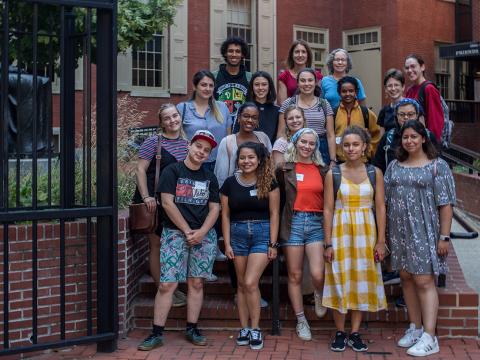
Now in its second semester, the Tri-Co Philly program is educating students on pressing issues through an enlivening set of classes bolstered by extracurricular experiences in the city of Philadelphia.